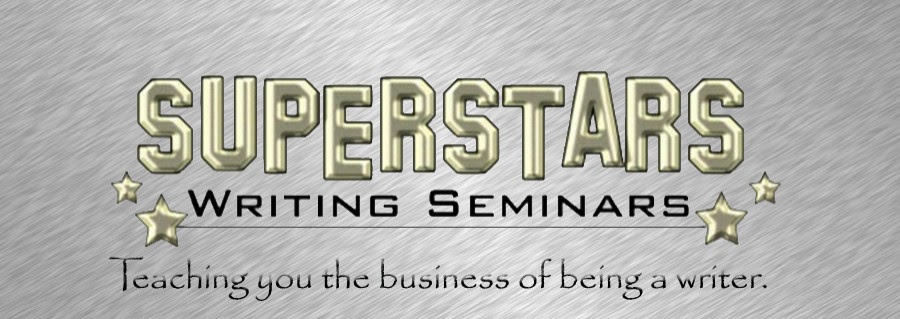 The Superstars Writing Seminar is an amazing experience. The
information about the business side of being a professional writer is presented
fast and hard, like drinking from a fire hose, by best-selling authors and
experts in the field. After wrapping up, I leave with my brain overflowing, and
my creative soul bursting at the seams.
The Superstars Writing Seminar is an amazing experience. The
information about the business side of being a professional writer is presented
fast and hard, like drinking from a fire hose, by best-selling authors and
experts in the field. After wrapping up, I leave with my brain overflowing, and
my creative soul bursting at the seams.
One of the most important pieces of advice I took away from
this year's seminar came about in a casual conversation over dinner. I had the
privilege of spending a few hours with NYT best-selling author Brandon
Sanderson. The conversation ranged from royalties, to plotting, to anything and
everything Brandon related. When I mentioned that I had a Barnes & Noble
signing coming up, he offered up some practical advice. He said to always bring
extra copies of your book. Don’t try to sell them yourself because the bookstore
wouldn’t appreciate that; however, you can work out a deal to sell your copies
as if the store had ordered the books themselves. After the event, they can
order books to replace the ones out of your stock.
It's a simple and elegant plan where everyone wins. And I
had the opportunity to test it out.
This past weekend I participated in my second book signing.
The Brandon, FL Barnes & Noble hosted an event for several local authors.
We were a magnificent group of seven, with books spanning the genres from
thriller to self-help, religion, inspirational, and my contemporary fantasy. No
two authors' genres overlapped, so we had a little bit of everything to offer.
After setting up, and before the signing officially started, we mingled a
little, handing out business cards and exchanging information. Everyone was
really cool.
For a local author event like this, Barnes & Noble is
pretty conservative. According to their stats, most authors only sell four or
five copies. Just in case, they may order a few more. They ordered ten copies
of Knight of Flame with the expectation they might have some left over.
I was concerned. I shouted the details for the signing from
every physical and virtual rooftop I could find, so I had high hopes that I'd
have a decent turn out. That being said, I didn’t want anyone who made the trip
to the book store to walk away without a signed book.
Other authors had said that Barnes & Noble wouldn't let
them sell their own books when the store's stock ran dry. Readers wanting a
book had to have it shipped to their house. While they did eventually get a
book, it wasn't signed.
So, keeping Brandon's advice in mind, I brought extra copies
in the hope the store would go for the plan. There is a difference in the
author selling directly versus providing additional stock for Barnes &
Noble to sell.
On the day of the signing, I sold out of the B&N copies
in the first thirty minutes. It was awesome. At one point I actually had a line
four deep. As the stock dwindled and we still had ninety minutes left in the
schedule, I made the suggestion Brandon talked about. At first, the Customer
Relations Manager thought I suggested selling my books on consignment, and
didn't go for it. But, once I explained that I was allowing them to sell my
stock as if it was their own, after mulling it over, she went for it. Sweet! I
grabbed a few copies from my bag and kept signing.
The bottom line is it’s really a win-win-win. The store
sells more books, and makes their customers happy. The readers get what they
came for -- a signed book. The author gets the additional sales, happy readers,
and a stronger relationship with the book store.
Have fun,
Scott
"Against the Shadow, burns a noble light."
